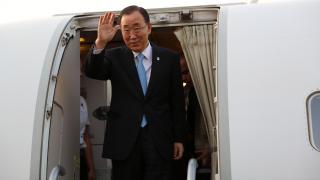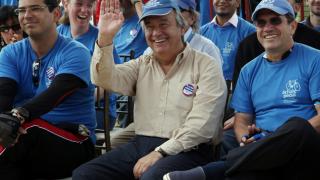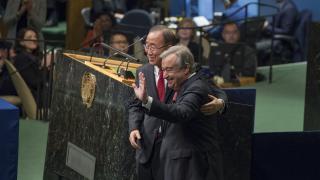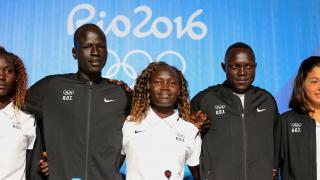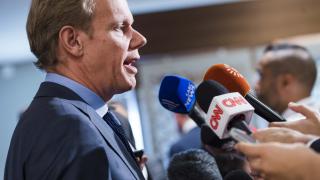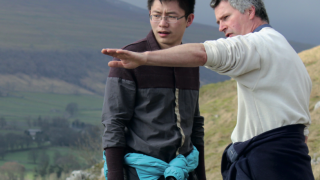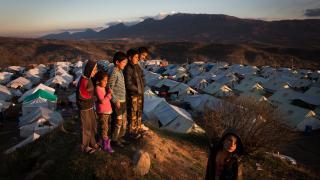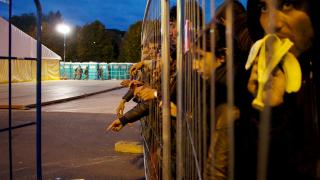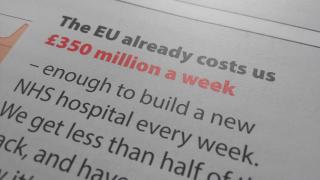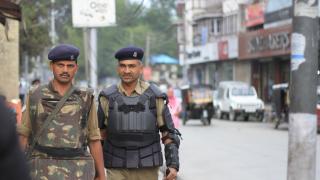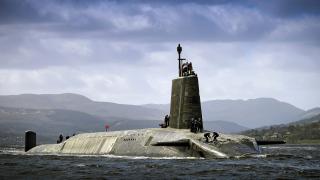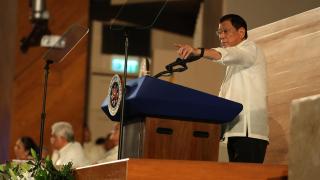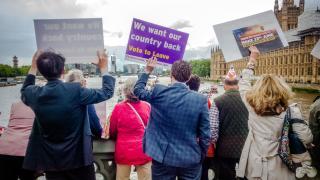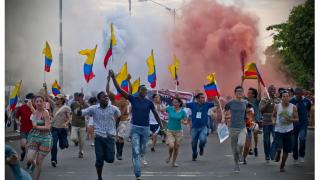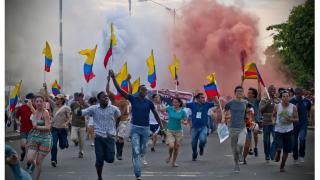
The story is familiar: a referendum, galvanising rhetoric, a razor-thin margin and a vote that defies predictions and leaves emotions running high. But unlike the EU vote, Colombia’s referendum on 2 October did not decide the membership of a regional union; it sealed the fate of a peace deal that would end a 52-year long war.
The ceasefire agreement reached between the Revolutionary Armed Forces of Colombia (FARC) and the Colombian Government after four years of negotiations marked the end of a conflict that caused some 220,000 deaths. It sought a balance between peace and justice by outlining the conditions of demobilisation and conditional amnesty, political participation and transitional justice. Yet, whilst the UN Secretary-General hailed the deal as “a bright flare of hope that illuminates the entire world”, 50.2 per cent of Colombians voted against it.
Numerous commentators interpreted the outcome as another example of ‘post-truth politics’ and expressed their aberration at “the fact that so many people rejected this chance under the influence of lies and superstition.”
For the leading ‘No’ campaigner, former President Álvaro Uribe, the duty to punish FARC members became a rallying call for people of all political leanings, from anti-leftist to anti-establishment. But Uribe not only presented the benefits conceded to rebels for demobilisation as perilous to Colombia’s judicial integrity. He also harnessed a rise in conservative resistance to the more liberal tendencies of President Santos’ Government. Following the legalisation of same-sex marriage and the removal of restrictions on abortion, the agreement’s inclusion of provisions on gender and LGBT issues was cast as a threat to ‘family values’.
Having focused his presidency on defeating the FARC militarily, Uribe also framed the war as a fight against terrorists. This oversimplified perspective allowed his inflamed rhetoric to go as far as calling Santos a “traitor” for engaging in talks with the FARCS.
Nevertheless, politics that manipulates facts and appeals to emotions is neither new, nor exclusive to right-wing politics. When Santos announced the end of the war at the UN General Assembly, he conveniently ignored the continuing fight of the National Liberation Army and the ongoing mobilisation of 10,000 neo-paramilitaries in the peripheral regions.
Analyses of post-truth politics tend to reduce truth to empirical facts that can be found and used to form the basis of rational decision. Commentators like Fernando Giraldo, have deplored that “the plebiscite laid everything out in black and white and now we’re stuck in a grey area.” But one only needs to look at the 297-page document and the range of issues it covered to understand the difficulty of casting a simple ‘yes’ or ‘no’ vote. Released a month before the referendum, most would have had to rely on media reporting for their decision.
Most importantly, more than just noisy rhetoric and gullible voters, the referendum outcome was the result of a polarised Colombian society, divided along economic, societal and political lines.
Firstly, regions most affected by socio-economic poverty and by FARC violence overwhelmingly voted in favour of the deal, compared to those in more affluent regions. Far from the FARC strongholds, where war was experienced mostly through TV sets, Uribe’s calls for uncompromising punitive justice would have sounded reasonable. On the contrary, in areas directly affected by the conflict, Colombians decided that compensating FARC members, however unfair, was not worth hijacking the peace process. Colombians’ lived realities informed their decisions.
Secondly, the outcome of the referendum was also the result of 63 per cent abstentionism, which indicates the sense of political marginalisation experienced by large segments of the population. Among the disillusioned were six million displaced people, forcibly evicted by wealthy landowners in cooperation with paramilitaries – a land-grabbing made possible by the very political and economic models and paramilitary violence that remained unaddressed by the peace deal.
If Colombia suffered from ‘Brexit syndrome’, it was not because of the referendum’s outcome. It was due to the irresponsible political decision of submitting a complex issue to a single vote, whilst ignoring the marginalisation experienced by large segments of society. Only by understanding how statements are made acceptable can we achieve a holistic picture of the fragmented socio-economic experiences that drive people’s decisions, and move towards more participatory democratic engagement than the occasional referendum.
While the revised peace deal signed in November included important changes with regards to claims of victims and civil society, Santos and the UN have a duty to ensure that peace works for not just for the FARC and the Government, but for the population as a whole.
Photo: Rural, indigenous and African communities protest for land and peace in Colombia, 2011. Credit: Agencia Prensa Rural



